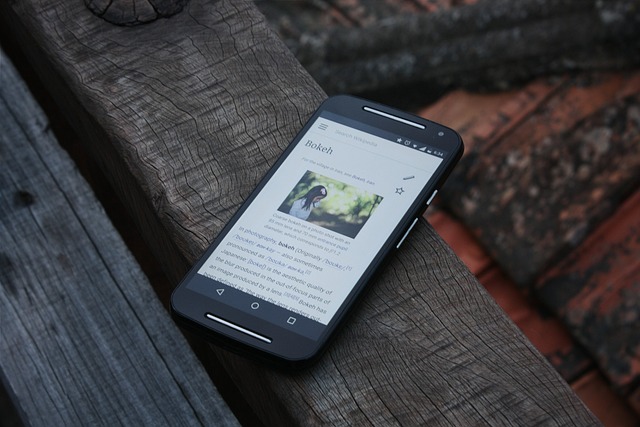Charity scam calls targeting Sumter, SC residents have increased, with fraudsters impersonating organizations and exploiting emotions. South Carolina's strict spam call laws and the Attorney General's Office aim to protect citizens from such scams. Residents are advised to verify charity legitimacy, avoid urgent requests, and use secure donation methods. The Spam Call Law (Telemarketing and Consumer Fraud Act) offers legal protection, and registering for the Do Not Call Registry reduces unwanted calls. Reporting suspicious calls to local authorities and the BBB aids in combating these fraudulent activities, ensuring citizens' safety from charity-related scams.
In Sumter, South Carolina, charity scam calls have become a persistent issue, targeting residents with fraudulent requests for donations. Understanding these scams is the first step toward protection. This article delves into the common tactics employed by scammers, offers guidance on identifying legitimate charities, and highlights legal protections under the Spam Call Law in SC. Learn practical steps to avoid and report these deceptive calls to keep your community safe from charity scams.
Understanding Charity Scam Calls in Sumter, South Carolina

In recent years, charity scam calls have become a prevalent issue in Sumter, South Carolina, and across the state. These fraudulent calls often pose as legitimate charitable organizations, leveraging people’s compassion to gain financial support. The callers may claim to represent well-known charities or create false causes, asking for urgent donations through various payment methods. Many times, these scams take advantage of current events or natural disasters to solicit funds with little intention of actually helping those in need.
South Carolina has strict laws against spam call practices, including those involving charitable organizations. The state’s Attorney General’s Office actively works to protect residents from such scams by educating the public and enforcing relevant regulations. Understanding these tactics is crucial for individuals looking to avoid becoming victims. By recognizing signs of a potential scam, like sudden requests for money, pressure tactics, or unclear information about the charity, Sumter residents can protect themselves and their financial well-being.
Common Tactics Used by Scammers Targeting Sumter Residents

Scammers targeting Sumter residents often employ various deceptive tactics to lure victims into providing personal information or making financial contributions. One common method is posing as representatives from reputable organizations, such as charities or government agencies, to gain trust and credibility. They may use urgent language, claiming that immediate action is required to prevent some perceived threat or emergency. For instance, scammers might call pretending to be from a local South Carolina law firm specializing in Spam Call lawsuits, asking for sensitive details to process a supposed reward or compensation.
Another tactic involves impersonating family members or authority figures to create a sense of urgency and panic. They may claim to be from a distant relative’s hospital or a government official demanding immediate payment for a back tax or fine. These scammers often pressure victims into making hasty decisions without verifying the legitimacy of the request, which is a primary defense against such schemes. Staying informed about these common tactics and being cautious when receiving unexpected calls, especially those creating a sense of urgency, can help Sumter residents protect themselves from becoming charity scam victims.
How to Identify Legitimate Charity Organizations

To identify legitimate charity organizations, start by verifying their authenticity through official channels. Check if the organization is registered with the state or a recognized charity regulator. Reputable charities often have transparent financial records and clear mission statements readily available on their websites or annual reports. Look for secure donation methods, such as online platforms that offer donation tracking and guaranteed security.
Researching their history and community impact can also help distinguish genuine charities from scams. Check reviews and testimonials from donors to gauge their reliability. If you receive a call from a self-proclaimed charity, be cautious. Legitimate organizations typically don’t make unsolicited phone calls asking for donations. Be wary of pressing needs or urgent requests, as these are common tactics used by scammers, especially in the context of the Spam Call law firm in South Carolina, to manipulate emotions and secure quick funds.
Legal Protections Under the Spam Call Law in SC

In South Carolina, there are legal protections in place to help residents avoid unwanted spam call scams, particularly those related to charitable causes. The Spam Call Law, also known as the Telemarketing and Consumer Fraud and Abuse Prevention Act, is a state-level regulation designed to safeguard consumers from deceptive telemarketing practices. This law restricts commercial calls made without prior consent, including calls promoting charitable donations or solicitations. By registering your phone number with the South Carolina Do Not Call Registry, you can significantly reduce the number of spam call scams you receive, especially those masquerading as charitable organizations.
If you’ve received a suspicious call claiming to represent a charity or asking for personal information, it’s advisable to hang up immediately and verify the legitimacy of the organization through official channels. Contacting a reputable spam call law firm in South Carolina can also help you understand your rights and take necessary actions against such fraudulent activities. Remember, legitimate charities never ask for sensitive information over the phone without proper security measures in place.
Practical Steps to Avoid and Report Charity Scam Calls

To avoid and report charity scam calls, start by being cautious of unexpected calls from unknown numbers. Do not provide any personal or financial information over the phone unless you have initiated the call and verified the organization’s legitimacy. Additionally, be wary of emotional appeals and urgent requests for donations, as legitimate charities typically follow a structured process for fundraising.
Next, familiarize yourself with South Carolina’s Spam Call laws that protect consumers from unsolicited calls, including those from charity scammers. Register your phone number on the Do Not Call list to limit these types of calls. Lastly, report any suspicious charity calls to local law enforcement and the Better Business Bureau (BBB) to aid in identifying and stopping scammers. This collective action can help create a safer environment for citizens in Sumter and beyond.






